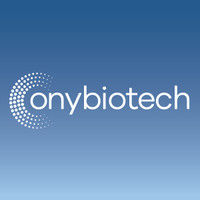预约演示
更新于:2025-05-07
Respiratory Distress Syndrome in Premature Infants
早产儿呼吸窘迫综合征
更新于:2025-05-07
基本信息
别名 HYALINE MEMBRANE DISEASE, FORMERLY、RDS OF PREMATURITY、RDS Of Prematurity + [3] |
简介- |
关联
3
项与 早产儿呼吸窘迫综合征 相关的药物靶点- |
作用机制- |
在研机构 |
原研机构 |
在研适应症 |
非在研适应症- |
最高研发阶段批准上市 |
首次获批国家/地区 日本 |
首次获批日期1987-10-02 |
靶点- |
作用机制 细胞膜通透性增强剂 |
在研机构 |
在研适应症 |
非在研适应症 |
最高研发阶段临床2期 |
首次获批国家/地区- |
首次获批日期1800-01-20 |
靶点- |
作用机制- |
在研机构- |
原研机构 |
在研适应症- |
非在研适应症 |
最高研发阶段撤市 |
首次获批国家/地区 美国 |
首次获批日期1990-08-06 |
66
项与 早产儿呼吸窘迫综合征 相关的临床试验NCT06917326
Clinical Pilot Study to Assess Safety and Performance of Neola®, a Novel Lung Monitoring Device for Neonates
Clinical pilot study to assess safety and performance of Neola®, a novel lung monitoring device for neonates
开始日期2025-04-01 |
申办/合作机构 |
NCT04056741
A Supraglottic Instillation Device for Administration of Surfactant in Neonates- A Pilot Study
A pilot study to explore and determine feasibility and safety of the administration of surfactant through a new supraglottic device in patients from 500 to 5000 grams with RDS.
开始日期2025-02-07 |
申办/合作机构 |
NCT06554522
Pragmatic Evaluation of Therapies to Enhance Respiratory Management in Preterm Infants in Africa
The goal of this pragmatic clinical trial is to learn if the drug surfactant given by a less invasive technique works to treat respiratory distress in preterm infants in low- and middle-income African countries where invasive ventilators are unavailable. It will also learn about the safety of the less invasive surfactant administration (LISA) technique. The main questions it aims to answer are:
Does surfactant given by a less invasive surfactant administration technique improve survival in preterm infants in low- and middle-income countries? What medical problems do participants have when receiving surfactant given by the less invasive surfactant administration technique?
Researchers will implement the less invasive surfactant administration technique and see if it works to treat respiratory distress in preterm infants compared to preterm who did not receive surfactant.
Participants with respiratory distress who are being treated with continuous positive airway pressure and caffeine citrate will:
Receive surfactant replacement therapy by the less invasive surfactant administration technique.
Be monitored for complications Be followed throughout their hospitalization to determine their survival rate.
Does surfactant given by a less invasive surfactant administration technique improve survival in preterm infants in low- and middle-income countries? What medical problems do participants have when receiving surfactant given by the less invasive surfactant administration technique?
Researchers will implement the less invasive surfactant administration technique and see if it works to treat respiratory distress in preterm infants compared to preterm who did not receive surfactant.
Participants with respiratory distress who are being treated with continuous positive airway pressure and caffeine citrate will:
Receive surfactant replacement therapy by the less invasive surfactant administration technique.
Be monitored for complications Be followed throughout their hospitalization to determine their survival rate.
开始日期2025-01-01 |
申办/合作机构  Indiana University Indiana University [+1] |
100 项与 早产儿呼吸窘迫综合征 相关的临床结果
登录后查看更多信息
100 项与 早产儿呼吸窘迫综合征 相关的转化医学
登录后查看更多信息
0 项与 早产儿呼吸窘迫综合征 相关的专利(医药)
登录后查看更多信息
14
项与 早产儿呼吸窘迫综合征 相关的文献(医药)2022-11-01·Indian Journal of Pediatrics
Natural Versus Synthetic Surfactant Therapy in Respiratory Distress Syndrome of Prematurity
Article
作者: Shah, Mili ; Patel, Chintan L ; Patil, Karamchand ; Nimbalkar, Somashekhar M ; Bansal, Satvik C ; Patel, Dipen V
2016-10-01·American Journal of Respiratory Cell and Molecular Biology1区 · 医学
Endothelial Monocyte-Activating Polypeptide II Mediates Macrophage Migration in the Development of Hyperoxia-Induced Lung Disease of Prematurity
1区 · 医学
Article
作者: Lal, Charitharth V. ; Awasthi, Niranjan ; Lowe, Chinn-Woan ; Schwarz, Anna M. ; Persad, Elizabeth A. ; Schwarz, Roderich E. ; Schwarz, Margaret A. ; Lee, Daniel D.
2015-10-01·Biochemical Society Transactions2区 · 生物学
ABCA3, a key player in neonatal respiratory transition and genetic disorders of the surfactant system
2区 · 生物学
Review
作者: Boldrini, Renata ; Masotti, Andrea ; Cutrera, Renato ; Peca, Donatella ; Danhaive, Olivier
1
项与 早产儿呼吸窘迫综合征 相关的新闻(医药)2022-08-25
·医药观澜
▎药明康德内容团队报道近日消息,李氏大药厂宣布从Windtree Therapeutics取得Surfaxin(KL4表面活性剂)、Surfaxin LS(冻干KL4表面活性剂)、AEROSURF及任何其他含有合成KL4表面活性剂的医药组成物的独家全球开发、生产及商业化权利。协议中的3款产品主要用于改善早产婴儿呼吸窘迫综合征的管理。为此,Windtree公司将获得高达7890万美元的开发、监管和商业里程碑付款以及特许权使用费。呼吸窘迫综合征(RDS)为婴儿出生后不久出现呼吸窘迫并进行性加重的临床综合征,多见于早产儿,胎龄越小,患病率越高。研究发现,早产儿发生RDS的原因是其肺部无法产生足够的表面活性剂。表面活性剂是一种存在于肺组织内部的液体,在呼吸时可降低肺泡气-液界面的表面张力,在静息跨肺压时可稳定肺泡塌陷。如果肺部缺乏足够的表面活性剂,会导致呼吸困难。Surfaxin(lucinactant)及Surfaxin LS是Windtree公司(前身为Discovery Laboratories)开发的试验性合成肽,均含有为改善早产婴儿的呼吸窘迫症候群管理而开发的药物——KL4表面活性剂。这种产品可以通过补偿表面活性剂的不足,恢复早产儿肺部的表面活性而发挥药效。AEROSURF(吸入式视光活性剂)是以非入侵性方式释放雾化KL4表面活性剂而设计的药物/器械组合,有望有效减少使用具入侵性的气管插管及机械式呼吸器。此前,美国FDA已就治疗呼吸窘迫症候群授予AEROSURF快速通道资格,而Surfaxin则获得孤儿药资格。 2012年3月,Surfaxin获得FDA批准上市,用于RDS高风险早产儿的RDS预防。临床研究结果证实,与对照组相比,Surfaxin治疗组婴儿的24小时内RDS改善情况和14日内RDS相关死亡率都明显优于前者,包括候选药在内的外源性表面活性药物可快速影响肺的顺应性和氧合作用。研究中观察到,与Surfaxin相关的常见不良反应包括心动过缓、氧饱和度下降、药物回流至气管内导管(ETT)以及气道ETT阻塞。此前,Windtree公司曾向李氏大药厂及其子公司兆科药业授予KL4和AEROSURF在大中华区的区域许可。此次双方签订新协议,将合作区域扩展到全球。根据许可协议,李氏大药厂将获得Surfaxin 、冻干lucinactant和AEROSURF用于任何潜在适应症和应用的开发和商业化全球许可,并将负责资助所有开发、制造和商业化活动。参考文献:[1] 李氏大药厂從WINDTREE THERAPEUTICS, INC.取得SURFAXIN™、 SURFAXIN LS™及 AEROSURF™的全球許可. Retrieved Aug 23, 2022, from https://pdf.dfcfw.com/pdf/H2_AN202208231577518411_1.pdf?1661299367000.pdf[2] WINDTREE THERAPEUTICS ANNOUNCES KL4 SURFACTANT AND AEROSURF® GLOBAL LICENSE AGREEMENT . Retrieved Aug 25, 2022, from https://ir.windtreetx.com/news-releases/news-release-details/windtree-therapeutics-announces-kl4-surfactant-and-aerosurfr[3]夏训明(编译)."美国FDA批准Surfaxin(lucinactant)用于治疗早产儿呼吸窘迫综合征."广东药学院学报 .(2012):155-155.Print.本文由药明康德内容团队根据公开资料整理编辑,欢迎个人转发至朋友圈。转发授权请在「医药观澜」微信公众号留言联系我们。其他合作需求,请联系wuxi_media@wuxiapptec.com。免责声明:药明康德内容团队专注介绍全球生物医药健康研究进展。本文仅作信息交流之目的,文中观点不代表药明康德立场,亦不代表药明康德支持或反对文中观点。本文也不是治疗方案推荐。如需获得治疗方案指导,请前往正规医院就诊。
快速通道孤儿药
分析
对领域进行一次全面的分析。
登录
或

生物医药百科问答
全新生物医药AI Agent 覆盖科研全链路,让突破性发现快人一步
立即开始免费试用!
智慧芽新药情报库是智慧芽专为生命科学人士构建的基于AI的创新药情报平台,助您全方位提升您的研发与决策效率。
立即开始数据试用!
智慧芽新药库数据也通过智慧芽数据服务平台,以API或者数据包形式对外开放,助您更加充分利用智慧芽新药情报信息。
生物序列数据库
生物药研发创新
免费使用
化学结构数据库
小分子化药研发创新
免费使用




